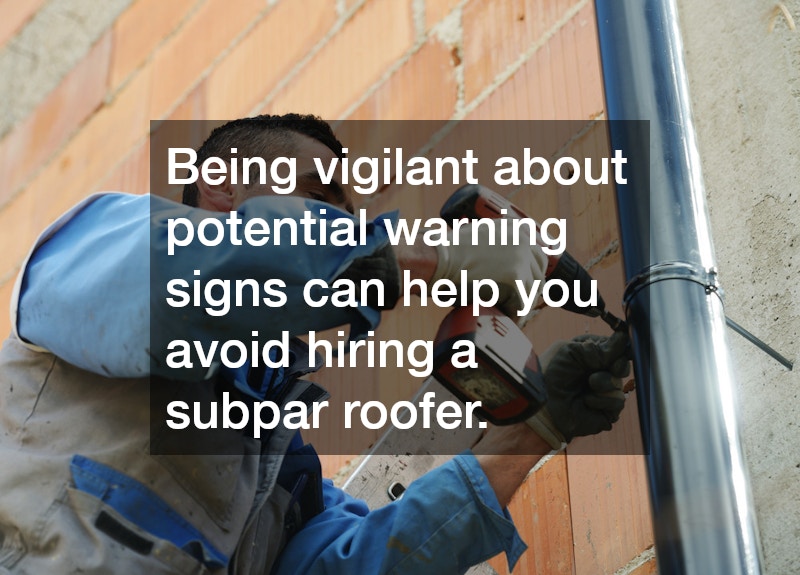This article will explore the essential things you need to know before hiring a roofer for your project. We’ll address common questions and provide insights to help you make an informed decision.
How to Choose the Right Roofing Contractor
Researching Credentials and Experience
It’s crucial to thoroughly investigate the credentials and experience of any roofing contractor you consider hiring. Please verify that the contractor holds a valid license and insurance, which ensures their legitimacy and protects you from liability.
Experience is another critical evaluation component. Professionals with extensive industry knowledge are more likely to deliver high-quality workmanship. Artists with extensive industry knowledge can address unforeseen challenges efficiently.
To determine a roofer’s experience, inquire about their years in business and previous projects. A well-established roofer with a portfolio of completed jobs will likely have a track record of success.
Comparing Quotes and Services
When selecting a roofer, comparing quotes from multiple contractors is vital to assure you receive a fair price. Analyze each proposal not only for cost but also for the scope of services offered.
Some roofers may include additional features or materials in their estimates, which can lead to cost differences. Understanding precisely what each quote encompasses is essential to make a well-informed decision regarding your budget.
By comprehensively reviewing and comparing quotes, you can avoid unexpected expenses and assure you choose a contractor who meets your financial and project requirements. Detailed assessments will prevent miscommunications and foster transparency.
What Are the Common Roofing Materials?
Types of Roofing Materials
Understanding the various roofing materials available is key to deciding which is best suited for your home. Asphalt shingles remain the most popular choice due to their affordability and ease of installation.
Metal roofing, on the other hand, offers durability and longevity, making it an excellent option for those seeking a long-term solution. Tile roofing provides a classic aesthetic, often enhancing homes’ architectural appeal.
Each material type has unique characteristics that can impact the decision-making process. When selecting a material, consider your home’s style, budget constraints, and maintenance expectations.
Advantages and Disadvantages
Examining the benefits and drawbacks of each roofing material is essential to making an informed choice. Asphalt shingles are widely available and have a shorter lifespan than.
Although more costly upfront, metal roofs can withstand severe weather conditions and require minimal maintenance. Tile roofs, while visually appealing, can be heavier and necessitate reinforced structural support.
The pros and cons should be weighed alongside personal preferences and long-term goals to assure satisfaction. A careful assessment can lead to a balance between cost-effectiveness and desired aesthetic results.
What Does a Typical Roofing Contract Include?
Key Contractual Terms
A comprehensive roofing contract should clearly outline specific terms to protect the homeowner and the contractor. Payment terms, project timelines, and warranty details are integral components of the contract.
To prevent disputes or confusion, ensure all deliverables are assured, including milestones and completion dates. A well-drafted contract serves as an agreement that sets expectations and provides legal recourse if needed.
It is wise to review the contract thoroughly and seek clarification for any ambiguous language. Engaging a legal professional may also be beneficial to assure the contract’s comprehensiveness and fairness.
Understanding Payment Schedules
Payment schedules should be explicitly detailed within the contract to assure clarity between parties and prevent conflicts. Typically, payments are structured across various project phases.
Paying incrementally, aligned with project milestones, can motivate timely progress and quality assurance. This approach protects the homeowner by linking fund disbursement to tangible outcomes.
Negotiating a mutually agreeable payment schedule can smooth the financial process and fortify trust between the homeowner and the contractor. Avoid contractors who demand large upfront payments or full payment before project completion.
How to Assess a Roofer’s Reputation?
Checking References and Reviews
Verifying a roofer’s reputation is crucial, and asking for references can provide direct insights into their work ethic and reliability. Ask for the contact information of past clients to discuss their experiences.
Online reviews and ratings are also valuable resources to gauge previous customer satisfaction. Sites like Google and Yelp offer positive and negative feedback platforms, painting a clearer picture of the contractor’s reputation.
Furthermore, consider seeking recommendations from friends and family who have recently completed roofing projects. Personal endorsements can offer compelling assurances of a roofer’s quality and professionalism.
Red Flags to Watch Out For
Being vigilant about potential warning signs can help you avoid hiring a subpar roofer. Avoid contractors who lack transparency, such as those unwilling to provide written estimates or breakdowns of costs.
Unexplained price hikes, aggressive sales tactics, or an unwillingness to discuss contractual terms are additional red flags that may indicate a less reputable contractor. Proper vetting through research and personal interactions can mitigate risks.
Trust your instincts and prioritize clear communication and professionalism throughout the selection process. Doing so can safeguard your investment and assure a successful project outcome.
Making an informed decision when hiring a roofer involves carefully considering contractor credentials, material choices, contract specifics, and reputation assessment. Addressing these key areas can assure a successful project that meets your needs.




